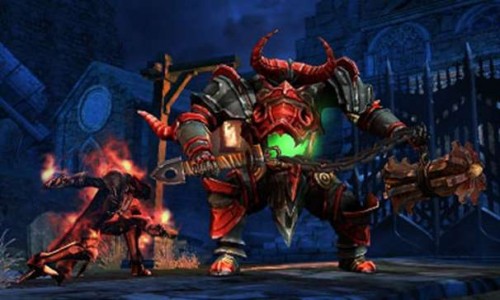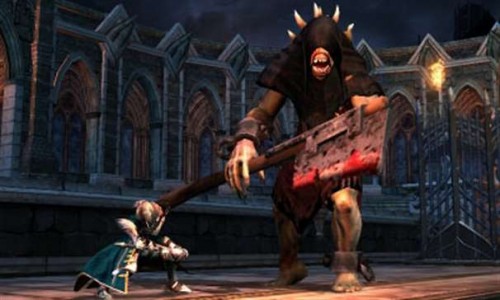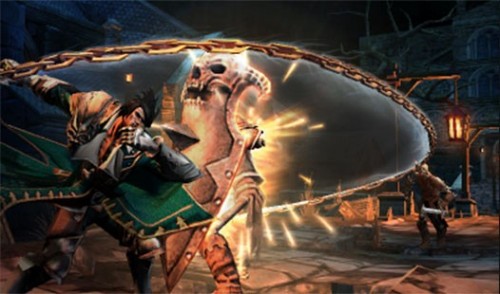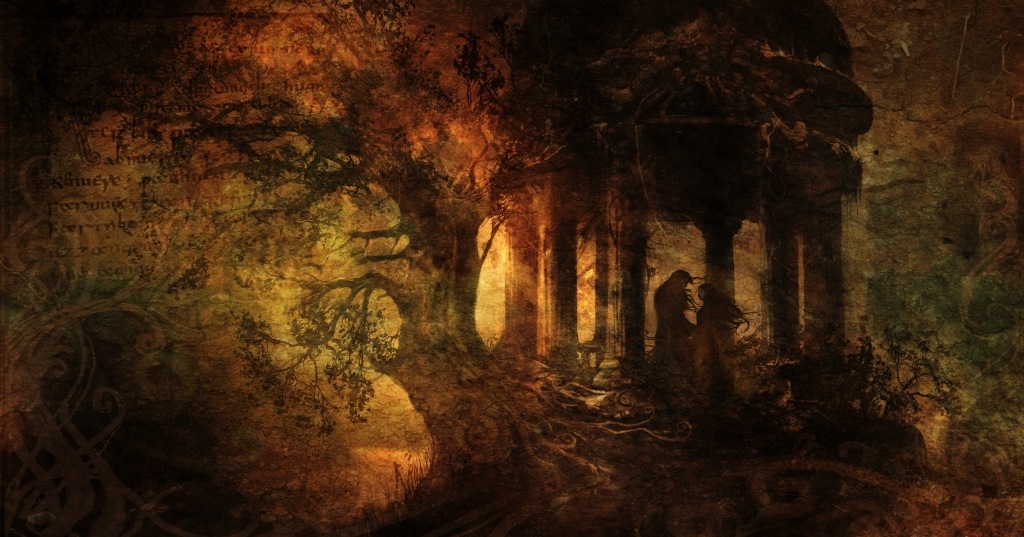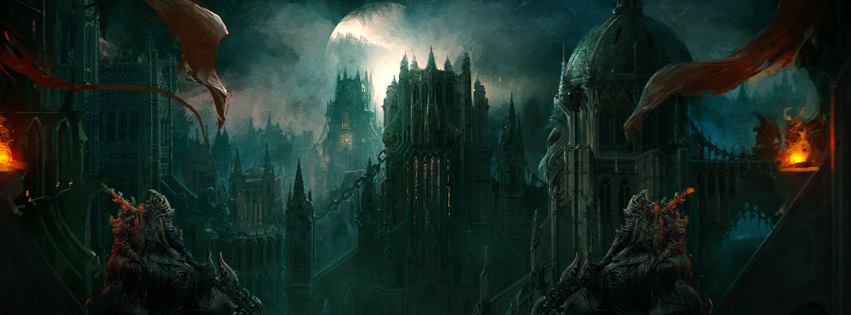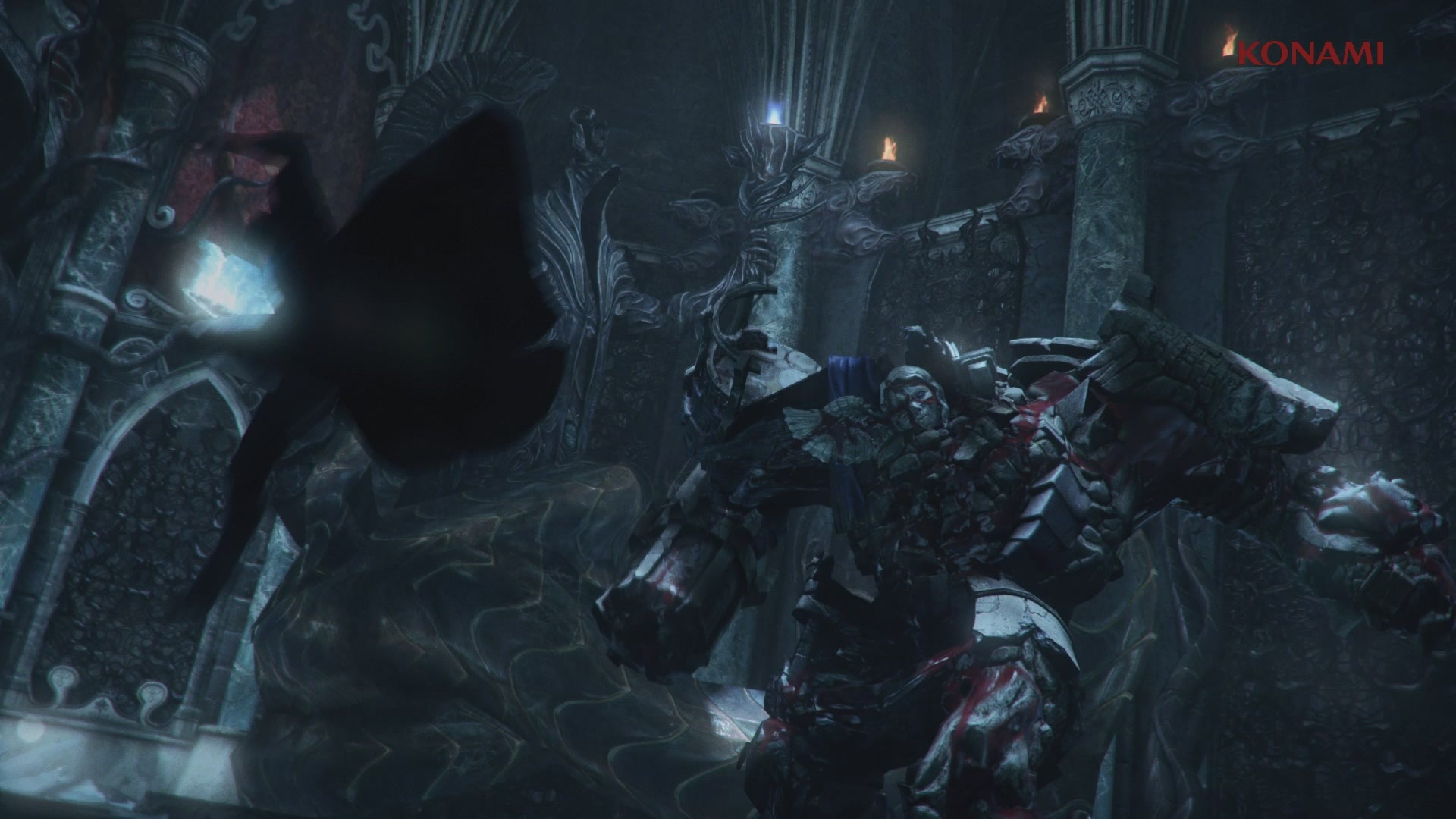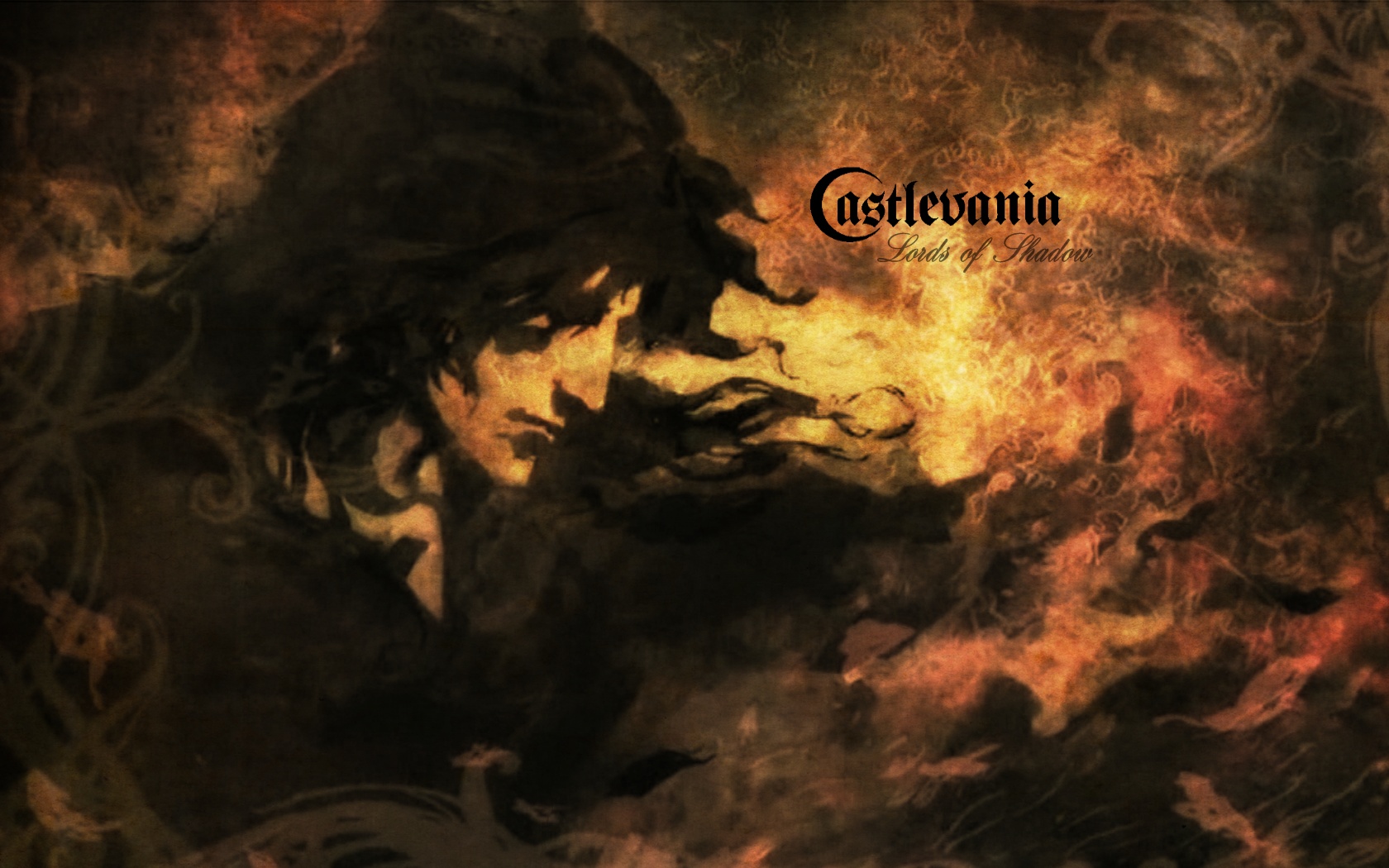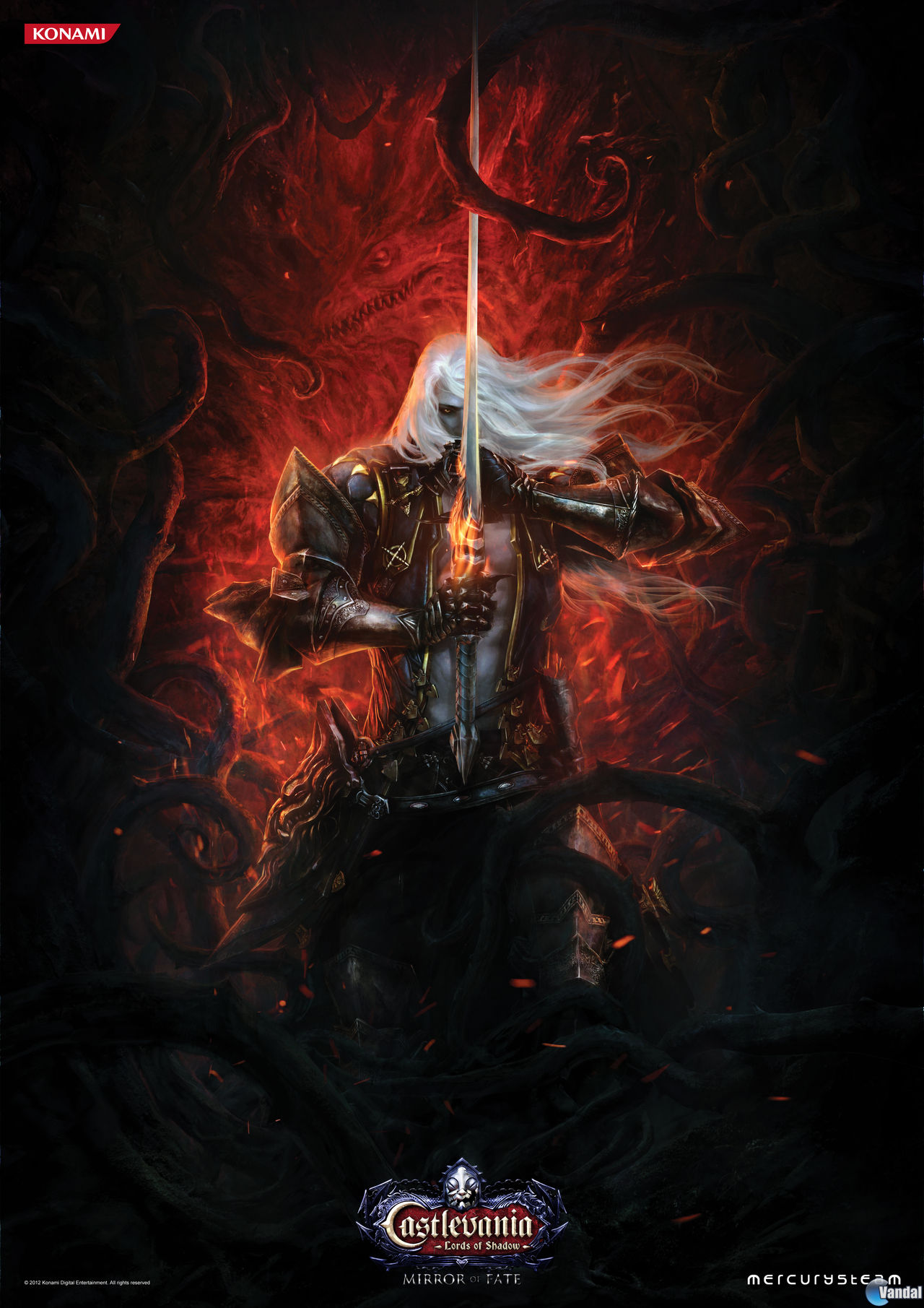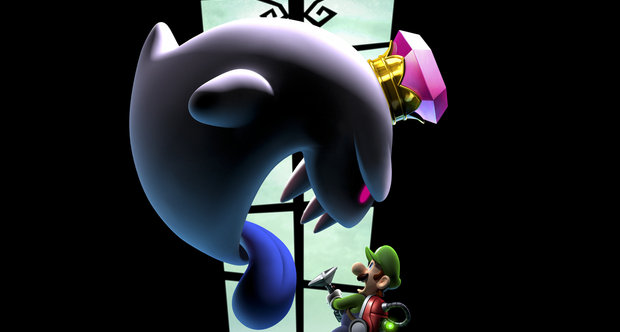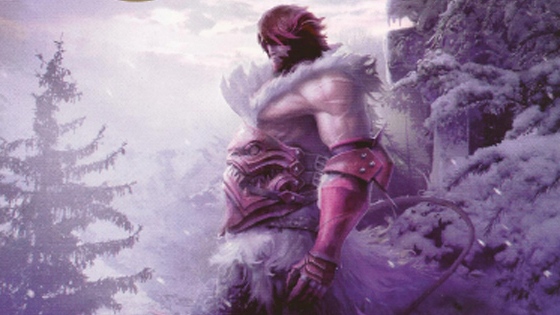
This review was contributed by Jeremy Jastrzab, freelance writer.
Castlevania easily ranks up there among my favourite series, and given that it has been around for more than 25 years, I’m clearly not the only one. Across time, it’s ventured from Hollywood B-grade action to gothic-inspired tropes to generic anime styles, all with the same purpose in mind: defeating Dracula. But game wasn’t just about defeating Dracula; it was how you got there. In the early days, it was the tough-as-nails platforming adventure with a satisfying challenge. Then Dracula’s castle was opened up through the inspiration of Metroid and the series lineage sprawled even further. Recently though, it got a tad weird with fighting and co-op games… That was until Konami finally scrapped the ‘IGA’ production line and started fresh with Castlevania: Lords of Shadow.
For the true Castlevania fan (i.e. the ones that started before Symphony of the Night), Lords of Shadow was a breath-takingly bold step for the venerable franchise into the modern world of gaming. The keen eye and ear would pick the lore, the references and the inspirations to recognise that this is the true lineage of the series, while also adding so much more. Mercury Steam’s first effort with the series barged it back into modern attentions, while their latest release, Castlevania: Lords of Shadow – Mirror of Fate for the 3DS, is a blast from the past; a lovingly crafted ode to the long-time fans and easily the second best marriage between the old and new of the series.
Just to acknowledge the elephant in the room and to get it out of the way, Mirror of Fate is NOT the second coming of Symphony of the Night – a title with a legacy living off nostalgia and a sparse release. And just as well. Former series producer, Koji ‘IGA’ Igarashi, did his best to drive the series to into the ground by trying to flog the Metroidvania formula to death. Not content with IGA hitting the self-destruct button, critics too have flocked en masse to remind us that Mirror of Fate is not Symphony of the Night. Which is a cry in shame; because what Mirror of Fate deserves attention for what it IS rather than what it’s not.
Continuing with the alternative timeline established Lords of Shadow and centreing around Gabriel Belmont, Mirror of Fate has players stepping into the shoes of three Belmonts: Gabriel, Trevor and Simon, while the appearance of series favourite Alucard, albeit in a different role, pretty much completes the Castlevania fan’s wet dream. Gabriel’s playable role is confined to the game’s tutorial, with the three other series staples featuring in a sprawling story that spans the best part of three generations. Without giving away too much for those who haven’t completed Lords of Shadow, this direct sequel takes a leaf out of tradition – the three famous protagonists ascend Dracula’s castle and take on the venerable nemesis himself.
The premise simple and pure enough to evoke an earlier time in gaming, but the journey itself has enough to twists, turns and connections to make it enjoyable. It mixes the modern and the past in an almost ideal cocktail. However, this new take on the Belmont lineage by Mercury Steam, as well as its relationship with Dracula make for a much more compelling and contemplative experience than the older titles – and something of a ‘tragedy’ type of tale. This leaves it well in line with the world and the themes established with Lords of Shadow. The story itself is ambitious in how it tries to connect the bloodlines, and while it may be a little predictable for series veterans, the presentation is immaculate and respectful to the portable nature of the title – even if you have to fill a few gaps yourself.
Divided into three acts – one for each of the protagonists – the initial impressions are classic 2D Castlevania with Lords of Shadow combat and weight. Once traversing the depths of Dracula’s castle though, I found a refreshing mix of the old and new. The castle structure has much more in common with the older game, with classically-defined areas but numerous areas that will only be accessible following an equipment or magic upgrade, a.l.a Metroid. The big difference with most of the Metroidvania production line is the level of design acumen applied to each area; they all make perfect sense in their lay out, never feel like padding and most of all, the rewards for exploration and return are genuine, not a single fraction of the space in the game is wasted. Everywhere has a purpose, and the discovery of an area is not the reward itself.
Mirror of Fate cleverly makes use of classical Castlevania sub-weapons and the magic systems used in Lords of Shadow, in combat, puzzles and getting around. Each of the three protagonists has a separate set – defensive and offensive magic and direct and area damaging sub weapons – which are appropriate, effective and well referenced. They all come together to be crucial for getting through the game, and nicely complement the chain/whip weapon that each carries. Starting with few abilities, each will gain an array of classical abilities to help them through Dracula’s castle, and the abilities will cascade across acts. The game also makes handy use of teleporters to help cut down back tracking.
Impressively, Mercury Steam has managed to also fit in the Lords of Shadow combat quite comfortably on a 2D plane. Combat is a genuine challenge too, where even the ordinary of enemies will do heavy damage to you, meaning you have to make use of blocking, dodging and parrying to survive. Intelligently, the level up system will afford you moves at the right times; just as one enemy seems tough, you’ve got techniques to deal with it. Apart from one towards the back end of the game, the boss fights are superb. Most are imposing and there is a heap of nostalgia, but overall they all need you to have your best game going to defeat them.
Mirror of Fate is a genuine platformer, as progress through the game has you feeling that you’re either making your way up towards some sort of summit, or falling to some inconvenient depths. As you progress, there are many more hazards along the way to gradually ramp up the challenge, as your equipment will help you but you need your skill. Some may find otherwise, but I had little problem playing and moving with the circle pad. Given that the characters are meant to be heavy, I found few issues with the controls – they work well enough. While it’s great to have a solid and heavy protagonist to play with, the last few Castlevania titles on DS were at least mechanically beyond reproach. Mirror of Fate is occasionally guilty of being mechanically sloppy on occasion.
Overall, taking into account the above elements, Mirror of Fate is just about the ideal Castlevania experience. Simon’s act is a bit more on the classical side; Alucard gets to see a bit more of the modern side; while Trevor’s is an excellent crescendo that blends the two sides together to create the ideal final act. Overall, as I love to go and explore just about every nook and cranny, my first play through took me around 10.5 hours to get 94%. While getting such a high percentage first up has been seen as a negative in some quarters, I don’t think the game design had too much more to add or improve up. I wholeheartedly recommend the extra effort to get to 100%, especially for the old time Castlevania fans, as it not only points the direction for Lords of Shadow 2 but beautifully complements the franchise as a whole.
The frequent checkpoints, objective markers and weak quick time events are probably the most glaring issues with Mirror of Fate. A somewhat necessary evil in this age, and arguably necessary for a portable title, the amount of checkpoints definitely cheapens an otherwise very challenging game. Sure, you can unlock hard and hardcore modes, but these mainly affect the damage done to you. Otherwise, it seems unfortunately evident that the game was finished off in a hurry. There are some fairly bizarre bugs that can be encountered – one where a sub boss invisible – and instances where a bit more polish was required. I wouldn’t be blaming the lack of developer effort though, as it seems like a case where they couldn’t help it.
Among the better looking and more elaborately produced 3DS titles, Mirror of Fate has a refreshing blend of cel-shaded scenes and dark 3D on 2D to make for a game well in line with the Lords of Shadow world. The 3D isn’t really necessary but it has a few neat touches throughout, while the style which has been described as ‘bland’ in some quarters is something of a bad rap – each part of the castle has a very distinctive flavour from the other. Some extra polish with the frame rate and latter parts of the game would have been welcome. The voicing is again, very well done for all characters. I didn’t recognise any classical tunes, and if they were there they have been very well disguised but the overall soundtrack is definitely a highlight of the game.
Both a fantastic ode to the series and to the new incarnation, Castlevania: Lords of Shadow – Mirror of Fate is among the best platformers of recent times. It’s a title that should be praised for its ambition, for making sure that there is nothing wasted in the design, for giving a modern take on a venerable series and for regaining some of the gameplay purity associated with a past time in gaming. I’m really enjoying this new tragic take on the Belmont lineage. And while it sings a great tune, it doesn’t quite hit the high notes. Castlevania: Circle of the Moon is still the ideal blend of the old and new, and it’s unfair that we’re left with the impression that the developers have been constrained by publisher and modern gamer demands. Still, life after IGA is looking great for the series, and if this game is anything to go by, Lords of Shadow 2 will be worth looking forward to.
Compelling and comprehensive modern re-imagining of the Belmont lineage | Tightly designed platforming action | No wasted discoveries
Checkpoints and quick time events too frequent | Bizarre bugs | Pushed out the door a little early

